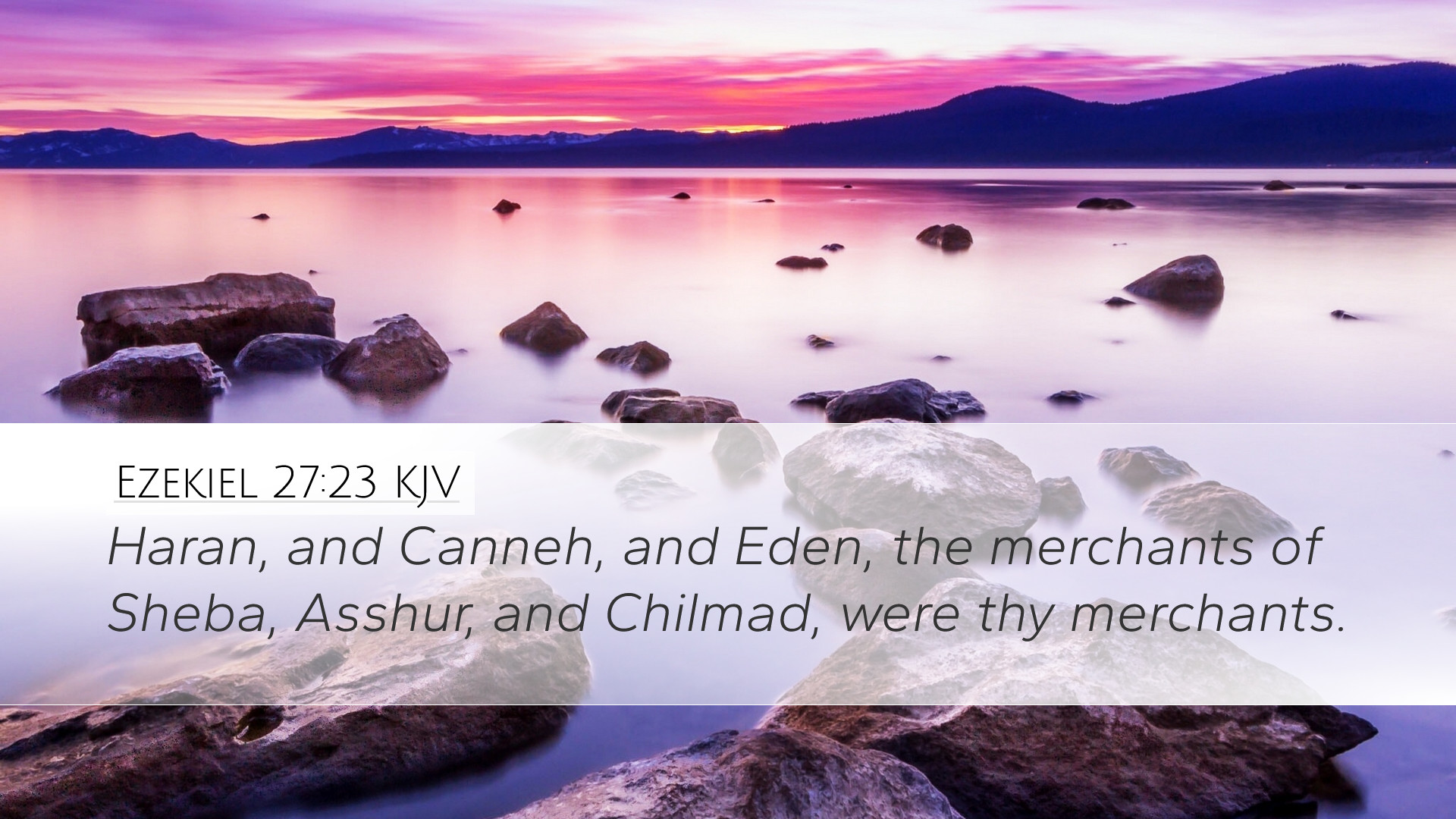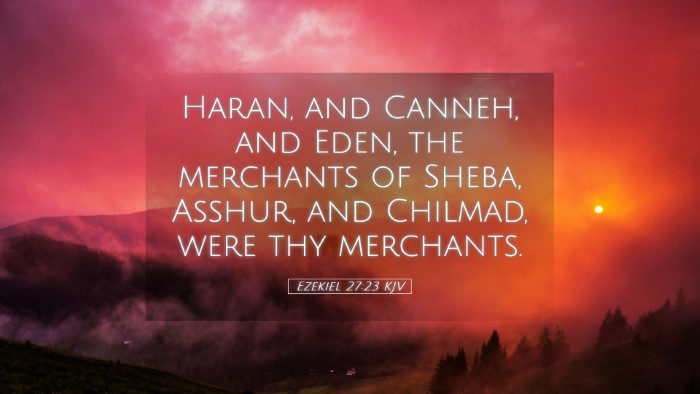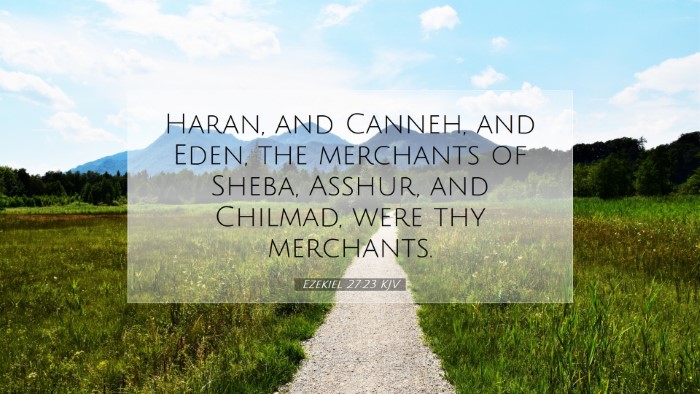Ezekiel 27:23 Commentary
Ezekiel 27:23: "The merchants of Haran, Canneh, and Eden were your merchants; they traded with you in choice garments, in robes of blue and embroidered work, and in chests of multicolored garments, which were made of finely woven linen."
Introduction
The verse Ezekiel 27:23 is part of a profound oracle concerning Tyre, a prominent Phoenician city and center of trade. This chapter highlights the rich commercial activities that made Tyre a significant economic power and explores the relationship Tyre had with various nations and peoples. In this commentary, we delve into the insights offered by Matthew Henry, Albert Barnes, and Adam Clarke, drawing upon their reflections to illuminate the text for modern readers, including pastors and theologians.
Contextual Background
Ezekiel, a prophet during the Babylonian exile, uses vivid imagery to illustrate the grandeur and subsequent downfall of Tyre. This verse specifically identifies several regions and groups—Haran, Canneh, and Eden—as key players in Tyre's trade network. These connections reveal the complexity and reach of Tyre's mercantile influence.
Haran and Canneh
Haran, a significant trading center, suggests connections to the eastern regions beyond Israel, rich in resources and trade routes. Canneh, possibly associated with the region of Canaan, reflects local interests. The inclusion of these areas indicates that Tyre's merchants were not limited to the Mediterranean but extended far into neighboring territories, leveraging their diverse products to maintain economic power.
Eden
The reference to Eden is particularly striking. Traditionally associated with paradise and abundance, it here symbolizes a source of luxury and opulence. Adam Clarke describes Eden as a region characterized by richness, suggesting that the garments traded were a testament to both the artistry and the wealth of the lands involved.
Symbolism of Garments
Verse 23 emphasizes imports of "choice garments," "robes of blue," and "embroidered work." These garments symbolize both physical wealth and cultural significance. Matthew Henry notes that the choice materials indicate a society that had mastered textile arts and fashion—a testament to Tyre's role as a cultural nexus.
Choice Garments
The "choice garments" represent the quality and exclusivity of Tyrian trade. In the ancient world, clothing was not merely functional but was deeply tied to status and identity. The luxurious fabrics mentioned—blue and finely woven linen—impart a connection to nobility and the affluent class, showcasing how trade was connected to social hierarchy.
Theological Implications
From a theological perspective, this verse serves as a metaphor for spiritual commerce. Albert Barnes draws attention to the idolatry and materialism associated with Tyre’s trade. Tyre symbolizes nations that prioritize economic gain over spiritual fidelity to God. The luxurious trade represents the seductive nature of wealth and its ability to distract from true devotion.
Lessons for Believers
The insights drawn from this text carry significant lessons for modern believers:
- Value over Vanity: The emphasis on material beauty should lead us to reflect on our priorities. Are we pursuing treasures that fade, or are we enriching our spiritual lives?
- Economic Engagement: As the church engages with the world’s economic realities, believers are called to navigate commerce with integrity and a commitment to Kingdom values.
- Hearts in Heaven: The allure of material possessions can easily divert one's heart. This passage serves as a reminder to maintain an eternal perspective amidst worldly pursuits.
Conclusion
Ezekiel 27:23 encapsulates the intricacies of trade in ancient Tyre while speaking to broader themes of materialism, loyalty, and the nature of true wealth. As pastors, students, and theologians dissect this passage, it becomes evident that the lessons contained within the text are as relevant today as they were in Ezekiel's time. Through these insights drawn from Matthew Henry, Albert Barnes, and Adam Clarke, we gain a deeper appreciation for the biblical text and its call to prioritize spiritual over temporal treasures.


